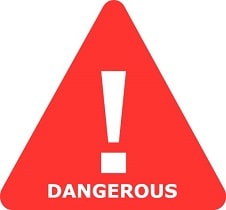Is EINECS 201-004-7 Safe in Breastfeeding
Question
I am a breastfeeding mother and i want to know if it is safe to use EINECS 201-004-7? Is EINECS 201-004-7 safe for nursing mother and child? Does EINECS 201-004-7 extracts into breast milk? Does EINECS 201-004-7 has any long term or short term side effects on infants? Can EINECS 201-004-7 influence milk supply or can EINECS 201-004-7 decrease milk supply in lactating mothers?
EINECS 201-004-7 lactation summary

- DrLact safety Score for EINECS 201-004-7 is 7 out of 8 which is considered Dangerous as per our analyses.
- A safety Score of 7 indicates that usage of EINECS 201-004-7 may cause toxic or severe side effects in breastfed baby.
- Our study of different scientific research indicates that EINECS 201-004-7 may cause moderate to high side effects or may affect milk supply in lactating mother.
- Our suggestion is to use safer alternate options rather than using EINECS 201-004-7 .
- Usage of EINECS 201-004-7 is in contradiction to breastfeeding hence if it is must to use EINECS 201-004-7 and there is no better alternative available then breastfeeding shall be stopped permanently or temporarily.
- Score calculated using the DrLact safety Version 1.2 model, this score ranges from 0 to 8 and measures overall safety of drug in lactation. Scores are primarily calculated using publicly available case studies, research papers, other scientific journals and publically available data.
Answer by Dr. Ru: About EINECS 201-004-7 usage in lactation
Stimulants, cathartic laxative drug which is irritant to intestinal mucosa. Risk of diarrhea among toddlers. Safer laxative drugs are those bulk-inducing, osmotic, emollient or stool softener agents. A balanced and fiber-rich diet, high fluid intake and physical exercise are of paramount importance to fight constipation. There are evidence of carcinogenicity from studies in experimental animals.
Alternate Drugs for Laxatives. ATC A06
Bisacodyl(Safe)
Cascara Sagrada(Low Risk)
Docusate(Safe)
Senna(Safe)
Aloe(Low Risk)
Castor(Unsafe)
Sodium Picosulfate(Safe)
Linaclotide(Safe)
Lactulose(Safe)
Alvimopan(Low Risk)
Carabaña Water(Low Risk)
Casanthranol(Low Risk)
Phenolphthalein(Dangerous)
Glycerin(Low Risk)
Guar Gum(Safe)
Isphagula(Safe)
Castor Oil(Unsafe)
Methylcellulose(Safe)
Sodium Sulfate(Safe)
Sodium Laurilsulfate(Safe)
Glycerol(Low Risk)
Docusate Calcium(Safe)
Docusate Sodium(Safe)
